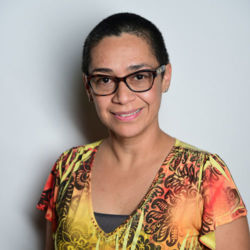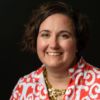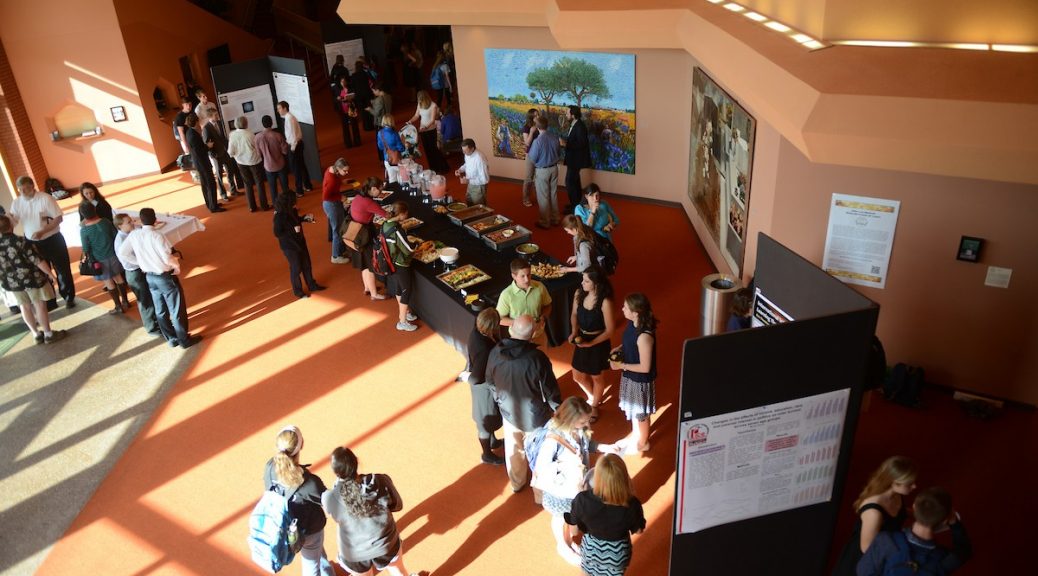Centre College faculty Amy Frederick (Art History) and Eva M. Cadavid (Philosophy) presented at last summer’s Biennial CUR conference. Here they reflect on some of the followup questions the audience asked about the rewards and challenges of incorporating undergraduate research at a small liberal arts college.
CURAH: What were some of the challenges you faced when you started doing undergraduate research at Centre, a small liberal arts college in a small town?

Eva: The biggest challenge for me was thinking about what undergraduate research looks like in philosophy. I found myself thinking that it either had to look like the sciences or feeling like my students would have to have all sorts of expertise if they were to genuinely work in my areas of research. Philosophy is normally seen as a solitary endeavor. It is not. If it was, why would we share our work at conferences and try to get feedback from others? Admitting that was my first step to identifying how to foster research with students. Students can collaborate with each other and with faculty while still being responsible for research that is theirs.

Amy: I absolutely agree that scholarship in the humanities has traditionally been solitary, which can be a challenge when thinking about conducting research with undergraduates. As an art historian, I find that our geographical location at Centre also presents obstacles for meaningful undergraduate research. Our closest regional art museums are the Speed Art Museum in Louisville, KY (89 miles away), and the Cincinnati Art Museum (121 miles away). My first thoughts upon arriving at Centre turned toward attempting to rectify this situation for my students. A common thread through my ongoing efforts is to provide opportunities for them to interact with objects both inside the classroom and as part of independent research projects.
CURAH: How are you addressing some of those challenges?
Eva: I am still trying to figure out what I am doing with UGR. Some of my students are doing the traditional independent study where they develop an interest they have over a semester and either revise a paper or write one. But I only work with students who are really focused on the topic and who agree to present their work publicly and revise their final papers. This seems to me a more traditional (and very valid) way of doing UGR with humanities students.
Some of my students have become an integral part of my research, which intersects both philosophy and social science. We have a research team with students staking their skills and developing a main project under the umbrella of our overall research but also very much knowing that they must help others on the team as needed.
Most of the students who have worked with me over the last 4 years are not philosophy majors. Some are and some declare a minor after working with me for a few semesters. They bring a lot into our research and they also develop a lot of philosophical skills that they then take with them and apply in their chosen fields. They bring creative and fresh perspectives and challenge me to defend and to rethink the way I do philosophy.
Amy: When I arrived at Centre, I was happy to find that the College owns a small teaching collection of art. Two years ago, two students and I began the long process of creating a database for the College’s ceramics collection. While work had been done on the collection in preceding years, it was never a primary focus for any one person or office. The students learned new vocabulary and how to create and use metadata. The students and I regularly discussed how each step of the process would inevitably lead to twenty more steps that they hadn’t initially considered. We all had to readjust our expectations, especially me. By the end of that first summer, one student was able to put all of the digital photographs of the objects into a OneDrive folder, and the second student had been able to input most of the already-known information into an Excel spreadsheet. No supplementary research was done, and we did not get through even a description of each object for our spreadsheet, much less a decision about how this information would eventually be presented to the public.
This past summer, another student took up the task. Work in the interceding two years had been sporadic and inconsistent, and often without parties talking with one another. We now have (incomplete) databases in OneDrive, GoogleDocs, Excel, AirTable, and an old image database. We have old file folders in a variety of locations on campus. I think I have become more realistic about the scope of this project, and more enthused by the continued student interest in working on it. I am thrilled that these students are learning to “do” art history. We will keep making small steps forward.
CURAH: What aspects of your experience might be applicable at other institutions?
Eva: Mostly, it has been very successful but it works best when I trust the student and give them the freedom to fail. It is also an endeavor that takes time. Although independent studies can lead to success in only a semester, for creating a research team, it helps to have students stay with the team over a few semesters, help train each other, and stake an area where they then train the next person. It may sound weird to think of applying this to philosophy, but it is doable – whether it is developing bibliographies, websites, documents, etc.
Amy: For me, I think it is important to discover and then utilize what you have. What are your available resources for undergraduate research (on campus, in the community), even if those resources may not be what you expect or are familiar with?
———————
What are your early experiences like in integrating undergraduate research in the humanities? Let us know in the comments or by contacting the editors at editors@curartsandhumanities.org.

This work is licensed under a Creative Commons Attribution-NonCommercial-ShareAlike 4.0 International License

